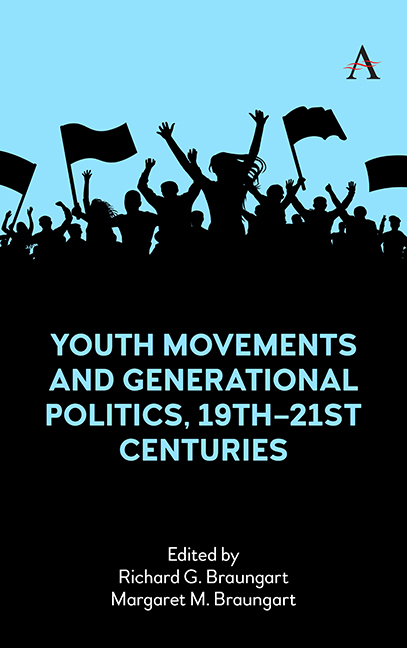8 - Youth Problems and Politics in the 1980s: Some Multinational Comparisons
Published online by Cambridge University Press: 18 November 2023
Summary
The personal, social and political views of young people are examined using two separate multinational surveys of youth conducted in 18 countries around the world. Results from the 1983 11-Nation Japanese World Survey and the 1982 Euro-Barometer 10-Nation Survey suggest that while youth (between the ages of 15/18–24) exhibit national differences, more importantly, they share many attitudinal features in common. Three themes in particular stand out characterising young people's personal lives, social attitudes and politics in the early 1980s: first, the majority of youth in these surveys are stable in their transition to adulthood; second, youth are searching for more independence in their lives; and third, young people express a surprising amount of approval for political mobilisation over contemporary political issues. These findings support both the socialisation and generational theories in political sociology.
Youth problems and politics took on a new importance in the 1960s when unprecedented numbers of young people began to question society and the wisdom of its leaders. The vast majority of youth at that time, however, were willing to accept the status quo, while smaller numbers withdrew into the counterculture, and fewer still took to the streets to dramatise their political views. The politicising rhetoric of the few eventually was to have a significant impact on the apolitical majority.
Many of the goals that youth accepted or rejected in the 1960s have not changed substantially in the 1970s and 1980s. Most youth, then and now, want to be accepted into society and live out happy, healthy and secure lives. However, there are still sizeable minorities of young people who are unwilling to passively accept social and political problems. These youth appear particularly sensitive to and critical of social issues that threaten their livelihood, and they would like to see many of these problems brought to a successful resolution. Since opportunities to participate in the formal resolution of social problems are limited and expensive, many modern youth have resorted to informal, non-parliamentary means to achieve their ends. A number of issues in particular have interested youth over the last three decades, and these include the desire for personal and civil rights for all members of society, social reform, particularly in the areas of education, poverty, employment, social services for the elderly, environmental safety and protection, impersonal bureaucracy, and the rejection of war.
- Type
- Chapter
- Information
- Youth Movements and Generational Politics, 19th-21st Centuries , pp. 169 - 190Publisher: Anthem PressPrint publication year: 2023

